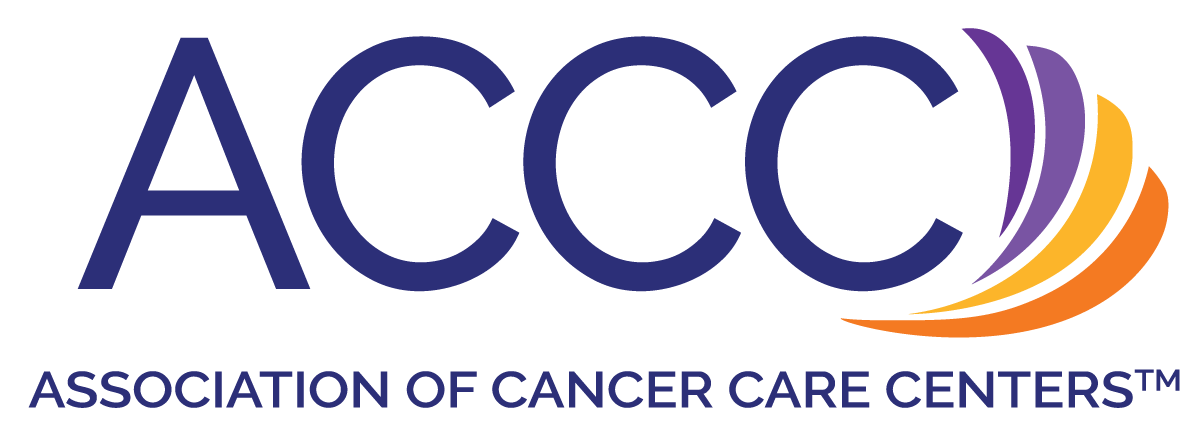
ACCC Report Recognizes Trends on Cancer Care Throughout United States

Findings from the Trending Now in Cancer Care 2020 report spotlights the impact of the coronavirus 2019 pandemic, a plummet in cancer screenings, health inequities, and more.
The Association of Community Cancer Centers (ACCC) released their annual report, Trending Now in Cancer Care 2020, which showed the short-term and long-term impacts of COVID-19 on cancer care programs and providers in the United States, as well as trends in cancer programs.1,2
“This report is critically important and unlike any other, in that we are able to identify the impact of the pandemic on cancer programs and their staff, and tailor our resources to incorporate the lessons learned over the past year,” Krista Nelson, MSW, LCSW, OSW-C, FAOSW, said in a statement. Nelson is the ACCC President and Program Manager of Quality and Research, Cancer Support Services & Compassion for the Providence Cancer Institute in Portland, Oregon.
“Feedback from members reaffirmed ACCC’s commitment to focus on education and resources to promote equity, diversity, and inclusion within oncology, and build a culture of resilience for cancer care staff,” Nelson continued.
To accurately report on the trends over 2020, ACCC used focus groups to discuss the experiences of those working in cancer care during the pandemic. The topics covered included telehealth and supportive technology, health equity, clinical research, staffing, and operational integrity, and service line delivery and revenue optimization.
The report highlighted the toll of the pandemic on cancer care staff and providers due to staff contracting COVID-19 and/or being furloughed or laid off, leading to financial hardship. The pandemic caused patient volume and revenue to decrease while workloads increased for staff and providers, whose rolls and responsibilities also expanded. Those who continued to work said they suffered from stress, burnout, exhaustion, and fatigue.
Staff and patients at cancer care programs also felt social and emotional isolation due to physical distancing. Due to this, leaders and managers became full-time support for staff. Many programs had to initiate communication processes to inform staff and combat anxiety, using virtual huddles and team-specific Facebook pages.
In the beginning of the pandemic, cancer programs had to adopt telehealth practices quickly. Virtual visits accounted for approximately 40% of patient volume in spring of 2020 and increased to around 50% during the fall. Additionally, shifting from in-person to remote work was a big change for certain parts of the cancer care staff, including administrators, oncology social workers, genetic counselors, and financial navigators. These workers had to change their communication with patients as well as physicians and nurses who continued to work in person.
Although telehealth improved access to care for patients in rural areas, a divide became apparent for those who do not have digital access such as cell phone minutes or service, connectivity, or privacy, and so patients could not benefit from telehealth equally.
COVID-19 made issues of health inequities more apparent in 2020 by exacerbated preexisting disparities in cancer care services for groups differing in age, socioeconomics, gender, geography, and race/ethnicity. Some programs tried to mitigate these differences in care by increasing transportation support for treatment visits, creating flexible clinic and treatment hours for working patients, partnering with community organizations to reach those at-risk, and addressing food insecurity and childcare needs. Clinical research has also become more flexible during the pandemic, which may have lasting effects on how clinical trials are designed and conducted.
Furthermore, since the start of the pandemic, cancer screenings have dropped and have not risen back to pre-pandemic levels. Screenings sites closed and providers did not offer screening appointments at the height of the pandemic. Patients were also canceling regular exams and avoiding going to the emergency department at this time. All of these factors have reduced the potential for finding cancer in patients earlier on in the disease process. The participants in the ACCC focus group said that tumor registries will probably record more advanced cancers in 2021 and beyond.
Not only were cancer screenings canceled or delayed, but certain health systems discontinued outpatient or scheduled appointments, as well as entire service lines during the pandemic due to the reduction in patient volume and elective procedures, which negatively impacted revenue.
Despite the hardships faced by those providing or receiving cancer care, COVID-19 instigated new ways to communicate and connect for cancer care staff and patients. The innovative methods used to overcome hardships created by the pandemic will have lasting effects on those with cancer and the people helping to treat them.
Reference:
1. Association of Community Cancer Centers releases report: Trending Now in Cancer Care 2020. New release. ACCC. Published May 24, 2021. Accessed May 27, 2021.
2. 2020 Trending Now in Cancer Care. ACCC. Accessed May 27, 2021.











































